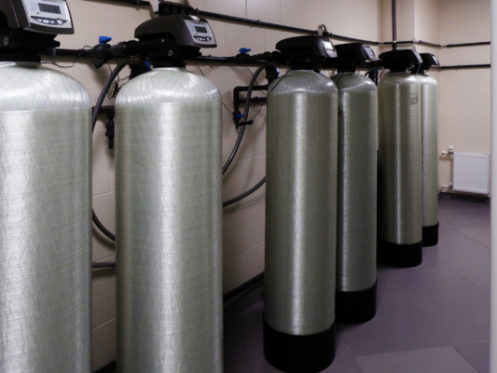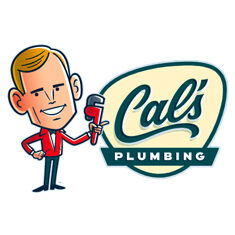If you live in an area with hard water, you’re probably familiar with the annoyances that come along with it. Hard water can dry out your skin and hair, leave spots on dishes and glassware and make it difficult to clean your home. A water softener can reduce or eliminate these problems by removing the minerals that cause hard water. But with so many different types and brands of water softeners on the market, how do you know which one is right for you? Keep reading to learn everything you need to know about water softeners.
How Does a Water Softener Work?
Water softeners work by exchanging the minerals that cause hard water (calcium and magnesium) with sodium or potassium ions. This process is known as ion exchange. As water passes through the softener’s resin beads, the positively charged ions exchange places with the sodium or potassium ions on the beads.
The result is water that contains no hardness minerals and fewer negative charges. This exchange also restores the softener’s capacity to remove more hardness minerals from future loads of laundry, dishes and drinking water.
Over time, the resin beads become saturated with hardness minerals and must be regenerated to continue working effectively. During regeneration, salt is added to the system, which flushes the hardness minerals out of the beads and replaces them with sodium or potassium ions.
After regeneration, the next load of laundry or dishwater will again contain hardness minerals, which will be exchanged for sodium or potassium ions during ion exchange. The process then repeats itself indefinitely.
Types of Water Softeners
There are two main types of water softeners: ion-exchange systems and reverse-osmosis systems. Within these two categories, there are several different types of each system available on the market today. Here’s a closer look at each type of system:
Ion-Exchange Systems
Ion-exchange systems are by far the most common type of water softener on the market today. These systems work by exchanging hard water ions for sodium or potassium ions. The two most common types of ion-exchange systems are salt-based softeners and salt-free softeners.
Salt-Based Softeners
Salt-based softeners are ion-exchange systems that use salt to regenerate their resin beads. These systems are very effective at removing hardness minerals from your water, but they require regular maintenance to keep them in good working condition. In addition, salt-based softeners can add a small amount of sodium to your water supply. If you’re on a low-sodium diet, a salt-based system may not be right for you.
Salt-Free Softeners
As their name implies, salt-free softeners do not use salt to regenerate their resin beads — they use potassium or another compound instead. Salt-free systems are not as effective as salt-based systems at removing hardness minerals from your water, and they do not add any additional chemicals to your water supply since they do not use salt in their regeneration process. In addition, these systems usually require less maintenance than their salt-based counterparts since they do not rely on electrical components that can break down over time. However, they are often more expensive than salt-based systems up front.
Reverse Osmosis Systems
Reverse osmosis (RO) systems work by forcing your household water through a semipermeable membrane that removes impurities as it passes through — essentially filtering your water rather than exchanging hard water ions for sodium or potassium ions like an ion-exchange system does.
Reverse osmosis systems produce very high-quality filtered water but they have several drawbacks when compared to other types of softened water systems. One drawback is that they are much slower at filtering your household supply than an ion exchange system, and they typically require more maintenance since they have more moving parts than an ion-exchange system does.
In addition, reverse osmosis filters typically last for only 12 months before needing to be replaced while an ion-exchange system’s filters can last for up to 10 years before needing replacement. Overall, however, if you’re looking for extremely high-quality filtered household drinking water, then a reverse osmosis system may be right for you. Just be aware that it will likely cost more upfront than other types of softened household drinking water systems and require more frequent replacement filters every 12 months on average.
How to Choose the Best Water Softener for Your Home
When it comes down to it, there is no easy answer when choosing which type of softened household drinking water system is best for you. It depends on several factors.
Water Hardness
The first step in choosing a water softener is understanding your water hardness. Water hardness is measured in grains per gallon (gpg) or milligrams per liter (mg/L). To find out your water hardness, you can either contact your local municipality or call a professional water tester to measure the level of your water hardness. Once you know your water hardness, you can start narrowing down your options.
Water Usage
Your family’s water usage should be taken into account when shopping for a water softener. The average household uses 80-100 gallons of water per day, but families with small children or who frequently entertain guests will likely use more. It’s important to choose a unit that can handle your family’s daily water usage so that you don’t run into any problems down the road.
Budget
Of course, budget is always a consideration when deciding on a major purchase for your home. Water softeners range in price from around $800 to $2,500 or more, so it’s important to determine how much you’re willing or able to spend, before beginning your search. Keep in mind, though, that investing in a quality unit now will save you money in the long run by prolonging the life of your plumbing and appliances.
Salt Delivery
Another thing to consider when choosing a water softener is salt delivery. Most units require salt refills every few months, which means you’ll either need to lug heavy bags of salt home from the store or have them delivered. Some companies offer free delivery with purchase while others charge an annual fee, so be sure to factor that into your budget if salt delivery is something that’s important to you.
Water Pressure
The pressure of your incoming water supply is another important factor to consider when choosing a softener. Most units will work just fine with standard city water pressure (40-60 psi), but if you have very high or very low pressure, you’ll need to make sure you get a unit that’s rated for that range. Otherwise, it won’t work properly and could even be damaged by the pressure variance.
Warranty
Most units come with at least a one-year warranty, but some come with longer warranties. This is important because a water softener is an essential part of your home’s plumbing system, and you want to be sure that it’s covered in case of any problems. A good warranty will give you peace of mind knowing that you’re covered in case anything goes wrong. When choosing a water softener, be sure to consider the warranty so that you can be confident in your purchase.
Call Professionals Today!
If you’re in need of plumbing, drain or water treatment services, don’t hesitate to call [Company_Name]. We’ve been in business for more than 70 years and have a wealth of experience serving Tucson and the surrounding areas. We’re always happy to help our customers with whatever they need. Give us a call today to learn more about our services.





